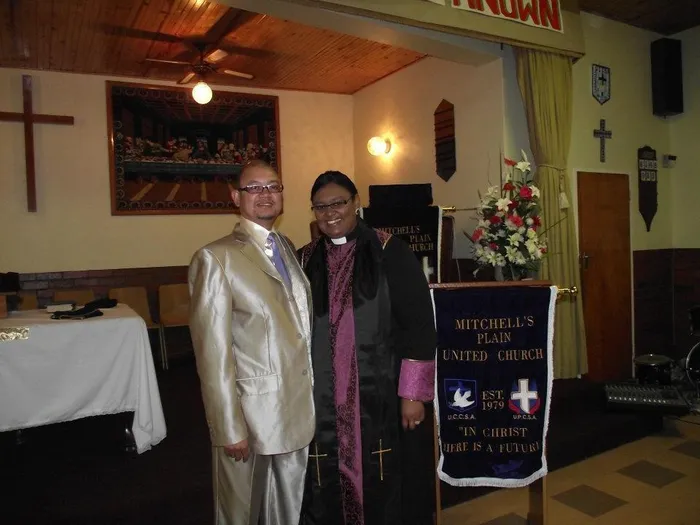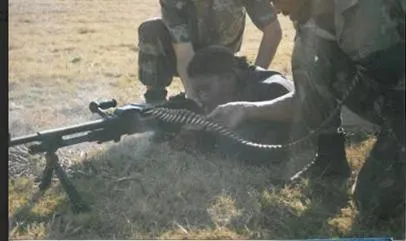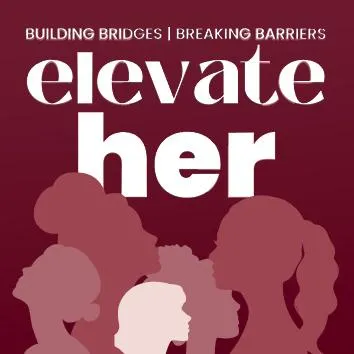Kraaifontein woman of faith outlives her pain to give survivors of GBV a place to belong

Reverend Tanelle Welff-Dixon, from Scottsville, opened up abut her journey in an interview with Northern News.
Image: Supplied
Cape Town will see a women’s march later this month as Reverend Tanelle Welff-Dixon leads a call for action against gender-based violence. The march is set to take place on Wednesday, August 27, starting from the Castle of Good Hope and proceeding to Parliament.
Reverend Welff-Dixon, who serves as project coordinator for the Kraaifontein police’s Spiritual Crime Prevention Forum, has long been an advocate for women’s and children’s rights through her Tanelle-Welff Ministries and Foundation. The organisation most recently hosted an event on Women’s Day, August 9, to highlight the plight of women farm workers.
Long before she became a public figure, Reverend Welff-Dixon carried the deep scars of her own experiences of abuse. She was raped twice before the age of 20 - once at gunpoint when she was just 12 years old, and again in her teens when she was drugged and assaulted by a group of men in Muizenberg.
“There was somebody that I knew, and also then, he was a police officer. His father used to be an upholsterer, and he had a chair that was meant to be covered. He called me to say that his father was finished with it, and then he lured me into the house and gun-pointed me,” she said.
While she was a 16-year-old Grade 11 pupil and a fashion model in 1991, she went on a date with a man who took her to a block of flats in Muizenberg. But the evening took a turn when five other men later entered, shattering her sense of safety.
“The last thing I remember eating and drinking was a packet of chips and a Coke that they gave me. They must have spiked the Coke,” she said.
When she regained consciousness hours later, she realised she had been raped by a group of men. Haunted by the indifference of the investigating officer during her first case, which dragged on for almost two years and ended without a conviction, she chose not to report this second ordeal.
Those traumas ignited her resolve to stand against all forms of abuse, a mission that has taken her from ministry work in Elsies River to sleeping on the streets in America after speaking out against corruption and misconduct in church circles.
Born in Scottsville, Kraaifontein, in 1975, Welff-Dixon went on to serve in the South African Air Force before founding her ministry in 2007. Since then, she has received international recognition, including humanitarian awards in both the United States and South Africa.
Her foundation continues to focus on advocacy, healing, and raising awareness of gender-based violence - work she hopes to highlight once again through this month’s march to Parliament.
Ms Welff-Dixon occupied the role of Aircraft Reconnaissance from 2000 until she was medically boarded in 2005, at the South African Air Force. She also worked as a market researcher and data capturer in a research company after matric, as well as an airline hostess.
She partnered with a local church in Elsies River and started a drama and substance abuse ministry to raise awareness against the scourge of addiction and gender-based violence.
Ms Welff-Dixon envisioned spreading the Lord’s message both locally and abroad, while learning from the work of churches around the world. This calling took her between South Africa and America, where she met her spiritual role models, including Bishop T D Jakes.
“I never knew or understood how my careers would help me, especially my military training (in SA Air Force) and the wilderness experiences, until I then had to draw from them after being left homeless in a foreign country.”
She lived on the streets for two months from October 2008, in the City of Lafayette in Louisiana, in America.
She later learnt about Faith House Shelter in Lafayette, a shelter that housed survivors of gender-based violence and domestic abuse, which she went to live in.
While staying in the shelter, she became actively involved in community feeding schemes. In early 2009, she also joined the Progressive Baptist Church of Lafayette, dedicating herself to ministry work once again.
Around the same time, a local Christian radio station manager, impressed by her story at a women’s international conference she organised, invited her to become a presenter and share the Gospel. She served on this radio from 2009 until 2011.
“After the church took me in, that helped me get back on my feet, train and develop my spiritual gifts while going through a process of healing from the trauma,” she said.
She was also appointed as a chairperson of the faith-based subcommittee for Bringing Regional Initiatives in Greater Acadiana (BRING) in 2009, which worked closely with the labour department to help ex-offenders develop soft skills through workforce development programs and ultimately reconnect them with their families and communities.
Her journey of service earned her major recognition - ordained as a reverend in 2011, she went on to receive the Bishop Isaac Harley Award in 2013 for her fight against gender-based violence, followed by a Humanitarian Award and the Key to the City in 2016 from US mayor Reggie Tatum, and another Humanitarian Award from former President Jacob Zuma the same year.

From left: Pastor Clint Dixon with his wife Reverend Tanelle Welff-Dixon, during one of the church services in Mitchells Plain.
Image: Supplied

Reverend Welff-Dixon training automatic weapons during her time at the South African Air Force.
Image: Supplied

Elevating women.
Image: File